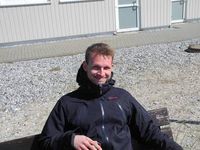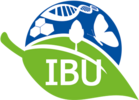Contact
Prof. Dr. Gerhard Zotz
Institute of Biology and Environmental Sciences (IBU) Phone +49 (0)441 798 3436 eMail gerhard.zotz@uol.de
A2
A2 Vascular epiphytes in the temperate zone – Plants on their way up

Mr Moritz Klinghardt, MSc. Biology
IBR PhD Candidate
| Contact details: | AG Funktionelle Ökologie der Pflanzen 26111 Oldenburg |
|---|---|
| Room: | W4 0-050 |
| Telephone: | +49 (0)441 798-3343 |
| Email: | moritz.klinghardt@uol.de |
Supervisors:
PI: Gerhard Zotz, Co-PIs: Dirk Albach. Michael Kleyer
Projects and Research:
Epiphytes offer a number of unique research opportunities to study selection processes at the interspecific and intraspecific level. Compared to similar systems in the tropics, communities of vascular epiphytes in the temperate zone are much richer in so-called accidental epiphytes, i.e. normally terrestrial species with a low proportion of individuals growing epiphytically. We hypothesize that most of these species are not truly “accidental”, but represent 1) a predictable subset of species and 2) a predictable subset of individuals within populations. We will study the vegetation in localities with a relatively rich epiphyte flora in an environmental E-W gradient from Oldenburg, Brittany, east Ireland to west Ireland, and in another N-S gradient from Oldenburg over low mountain ranges in Germany to the foothills of the Alps. Relevés will determine relative abundances of epiphytic and terrestrial members of all local species. We will use accessible trait data bases and additional measurements of traits related to water economy (germination) and frost tolerance to understand the underlying selection processes. At the same time we will investigate how reproductive processes may already diverge between terrestrial and epiphytic members of the same species (differences in phenology, pollinators, self-compatibility and other aspects of reproduction biology). Ordination techniques will be used to detect common trait syndromes in species with many epiphytic individuals. Within species, we will determine possible differences in the reaction norms of epiphytic and terrestrial members to stressors relevant for epiphytic existence (water economy, root morphology, frost tolerance). We aim at demonstrating a deterministic environmental filter and the identification of specific trait syndromes among terrestrial plants “on their way up”. By abandoning the rating “accidental” in connection with these plants we should identify potential evolutionary avenues for the epiphytic lifestyle from terrestrial predecessors. For selected species with larger population sizes, e.g. Polypodium vulgare, we will also study a facultative epiphyte along the East-West gradient in oak-holly forests of varying humidity in particular detail. We will compare the performance of individuals and populations. This will be complemented by genetic approaches, albeit to a limited degree because of the given financial limitations.
Curriculum vitae:
2010: B.Sc., University of Oldenburg
2014: M.Sc., University of Tromsø
From Jan. 2015: Doctoral student, University of Oldenburg

